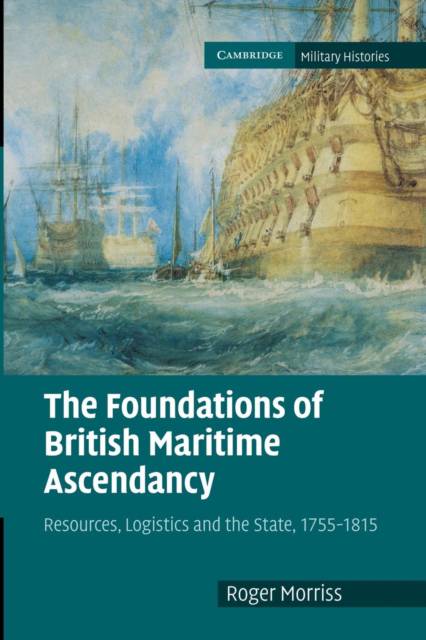
Bedankt voor het vertrouwen het afgelopen jaar! Om jou te bedanken bieden we GRATIS verzending (in België) aan op alles gedurende de hele maand januari.
- Afhalen na 1 uur in een winkel met voorraad
- In januari gratis thuislevering in België
- Ruim aanbod met 7 miljoen producten
Bedankt voor het vertrouwen het afgelopen jaar! Om jou te bedanken bieden we GRATIS verzending (in België) aan op alles gedurende de hele maand januari.
- Afhalen na 1 uur in een winkel met voorraad
- In januari gratis thuislevering in België
- Ruim aanbod met 7 miljoen producten
Zoeken
The Foundations of British Maritime Ascendancy
Resources, Logistics and the State, 1755 1815
Roger Morriss
€ 60,95
+ 121 punten
Uitvoering
Omschrijving
British power and global expansion between 1755 and 1815 have mainly been attributed to the fiscal-military state and the achievements of the Royal navy at sea. Roger Morriss here sheds new light on the broader range of developments in the infrastructure of the state needed to extend British power at sea and overseas. He demonstrates how developments in culture, experience and control in central government affected the supply of ships, manpower, food, transport and ordnance as well as the support of the army, permitting the maintenance of armed forces of unprecedented size and their projection to distant stations. He reveals how the British state, although dependent on the private sector, built a partnership with it based on trust, ethics and the law. This book argues that Britain's military bureaucracy, traditionally regarded as inferior to the fighting services, was in fact the keystone of the nation's maritime ascendancy.
Specificaties
Betrokkenen
- Auteur(s):
- Uitgeverij:
Inhoud
- Aantal bladzijden:
- 460
- Taal:
- Engels
- Reeks:
Eigenschappen
- Productcode (EAN):
- 9781107670136
- Verschijningsdatum:
- 30/01/2014
- Uitvoering:
- Paperback
- Formaat:
- Trade paperback (VS)
- Afmetingen:
- 152 mm x 229 mm
- Gewicht:
- 607 g

Alleen bij Standaard Boekhandel
+ 121 punten op je klantenkaart van Standaard Boekhandel
Beoordelingen
We publiceren alleen reviews die voldoen aan de voorwaarden voor reviews. Bekijk onze voorwaarden voor reviews.









